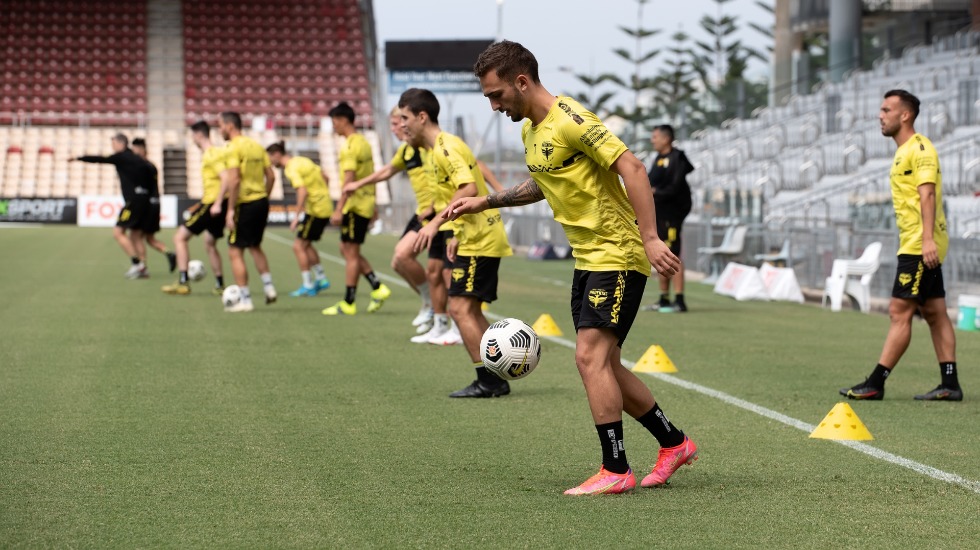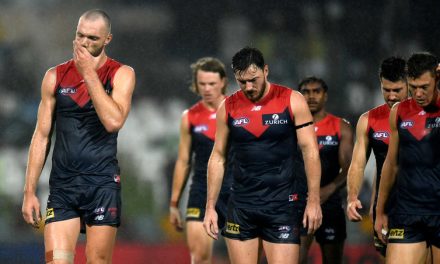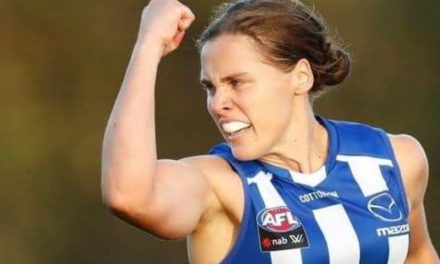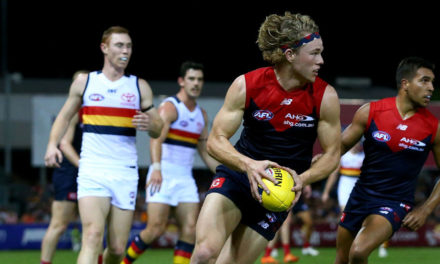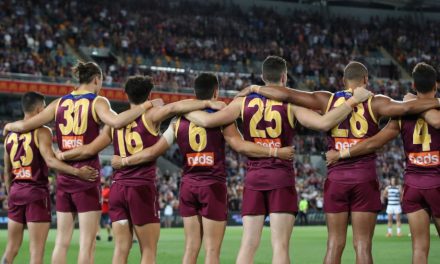Wellington Phoenix players take part in a training drill at their adopted home in Wollongong. Photo: SPEED MEDIA AUSTRALIA
Many sporting clubs have done it tough during COVID. Not just in terms of money, with reduced television contracts almost across the board, but the sacrifices players have had to make. Periods of quarantine, lock downs, reductions in wages, hubs.
But A-League outfit, Wellington Phoenix, has probably had it harder than most.
Recently, the Phoenix passed one calendar year without having been able to host a single game at their Sky Stadium home in New Zealand. Some of the newer members of the squad, such as Israeli import, Tomer Hemed, have yet to play in the city the club represents.
On the field, that disconnect hurt the Phoenix badly last season. Handily placed in fourth when the virus struck in March, their forced relocation to a hub in Sydney for the July resumption effectively killed off hopes of a maiden championship. They won just one of their remaining seven matches.
With the travel bubble only operating one way between Australia and New Zealand, Phoenix had little choice but to up sticks once again for the new season when it began in December.
They have based themselves in Wollongong – but being in Australia long-term (they actually arrived in November to prepare), has been a very costly exercise, according to club chief executive David Dome.
“It’s certainly north of a million dollars – and the exact cost will depend on how long we are here for. It’s been hard pulling all that together.” Dome says.
“There’s a lot of things that come into play in Australia that we don’t have in New Zealand – things like pay roll tax, all kinds of insurance. That insurance is three times more expensive here.
“The players have also become Australian tax residents after 90 days here – so you can’t get out of paying super. All the players have essentially taken a 10 per cent pay cut. No-one anticipated that.”
The Phoenix owners have done their best to stand by their players – insisting no staff member be disadvantaged.
If a player has a mortgage in New Zealand for example, he doesn’t have to pay rent in Australia. It’s the same with insurance. The club has also pledged to complete the tax returns of up to 30 staff members to comply with Australian law. A financial black hole, and a logistical nightmare – all without match day revenue, or the ability to service their corporate partners.
And that’s just the fiscal implications.
Some players have now been separated from their families for the best part of six months. The upshot of their long-term stay in Wollongong, says Dome, is that many players are on the verge of putting down roots.
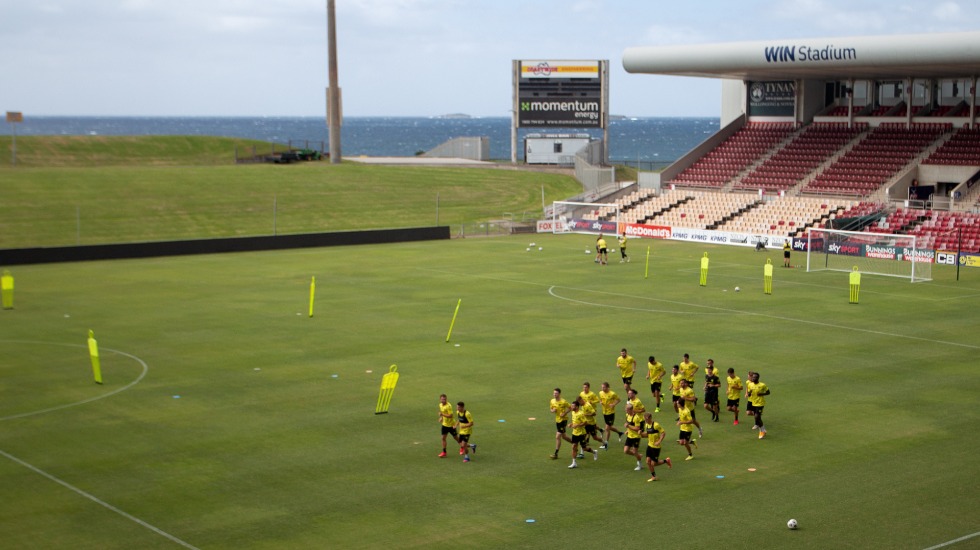
Wellington Phoenix during a training session at its “home away from home” at Wollongong’s WIN Stadium. Photo: Speed Media Australia
“The players have apartments, houses – some players wives have jobs, their children are in school here,” he says.
“Even if we wanted to move back to Wellington tomorrow, we couldn’t do it – we couldn’t find accommodation for all the players. There aren’t 30 rental apartments available in Wellington. So if we were to go back, we would probably stay in Wollongong as a base, and treat a Wellington trip like an away game, staying at a hotel. Which of course, would incur more cost.”
At the temporary club offices at the University of Wollongong, coach Ufuk Talay and his staff have to make do with a cramped office, lacking air-conditioning & meeting room space. On Dome’s “to-do” list this week? To increase the number of available cars, with three of the backroom team currently sharing one between them.
But necessity is the mother of all invention – and if there is a silver lining, then Dome believes it is the corporate connections the club has made while in exile.
“What we’ve discovered is there is a real groundswell of business interest in football which wants to be a part of the A-League,” he says.
“Underpinning the whole thing is our W-League proposition. If we are going to have a W-League team, it is going to be based out of this region. As a club, we think there is a relationship to be built here, medium to long-term.”
PLEASE HELP US CONTINUE TO THRIVE BY BECOMING AN OFFICIAL FOOTYOLOGY PATRON. JUST CLICK THIS LINK.
The Phoenix actually wanted a W-League team in this year’s competition, but were knocked back by Football Australia, which wasn’t certain having a Kiwi team in the league would be good for the game here. Especially as it would help the New Zealand national team prepare for the FIFA Women’s World Cup, an event that the two countries will co-host in 2023.
“That’s the challenge – for us to build a proposition for Wellington Phoenix and the FA that a team in Wollongong makes sense. In the short-term, a W-League team has to be based in Australia for financial reasons. Travel to and from New Zealand is too expensive, and the W-League isn’t at a level to sustain that yet.” says Dome.
But the next part of the potential equation is one that could cause alarm among those long-suffering Phoenix fans back in New Zealand. A partial relocation of their men’s team too.
“Wellington will always be our home, but it doesn’t mean we have to play every single game there,” says Dome.
“At the moment, we play two games outside Wellington per year. At Eden Park, we have had big crowds, so Auckland makes sense to us. Part of this proposition is to take football to an area where the game can’t branch into yet. Auckland doesn’t have a team, and Wollongong doesn’t have a team, but there’s massive interest. It makes sense.
“We are yet to break even at Sky Stadium with the numbers of fans we have attending. If we were getting 15,000, then no problem. But there are significant financial holes we have to fill, especially with COVID, and we have to look at ways outside the box of ways of doing that. We can’t keep asking the owners to continue writing cheques endlessly – it’s just pure philanthropy at the moment, which is where most A-League clubs are at.”
Whether that idea would go down well with loyal fans like David Cross – a member of the active group “Yellow Fever” – is debatable. For him, home games are an essential part of his life.
“I miss the games, but it’s the social side as well,” he say. “Football is the hub of a lot of Wellingtonians social lives – during the summer, every couple of weeks there is that focal point, it’s the whole day. It’s the social interaction that is missing.”
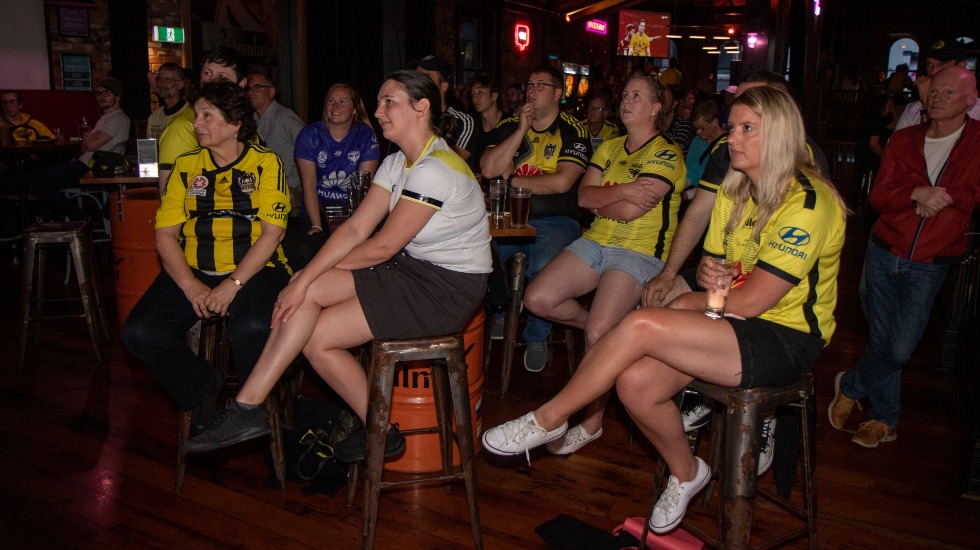
Wellington Phoeniz fans have had to get used to watch their team play from afar. Photo: PhotomacNZ
The longer the Phoenix are away, the looser that connection could become. Cross admits the struggle for media space has intensified with the Black Caps going well and the Super Rugby starting – and broadcaster Jason Pine says the players’ absence from familiar Wellington hangouts is just as noticeable.
“They did a great job of getting out into the community here – they went to schools, popped up at retailers and sponsors events,” he says. “They have always been visible outside of match day. They entrenched themselves in the community, because they know rugby is the biggest game in town, so they had to have that personal approach.”
It’s not the first time a question mark has hung over the future of the Phoenix – a club which is beyond question the most successful to come out of New Zealand, on the back of the hapless Football Kingz and the disastrous New Zealand Knights.
Being a club from the Oceania region (while Australia is in Asia), has caused friction in the past – some in Australia believe they should be ditched altogether, to be replaced by another Aussie club.
Perhaps COVID has inadvertently pushed them towards that outcome – at least in part?
For now, the team is performing well given all the problems – its latest game ending in a 4-1 win over Melbourne Victory. But for Kiwis like vice-captain Alex Rufer, a home game in Wellington – whenever that might be – is the one thing they are craving the most.
“We haven’t played a home game in a very long time,” he says. “We miss our fans massively. Once you lose something, you realise how special it is. I think it’s made us closer, and we can’t wait until we can get back there.”

